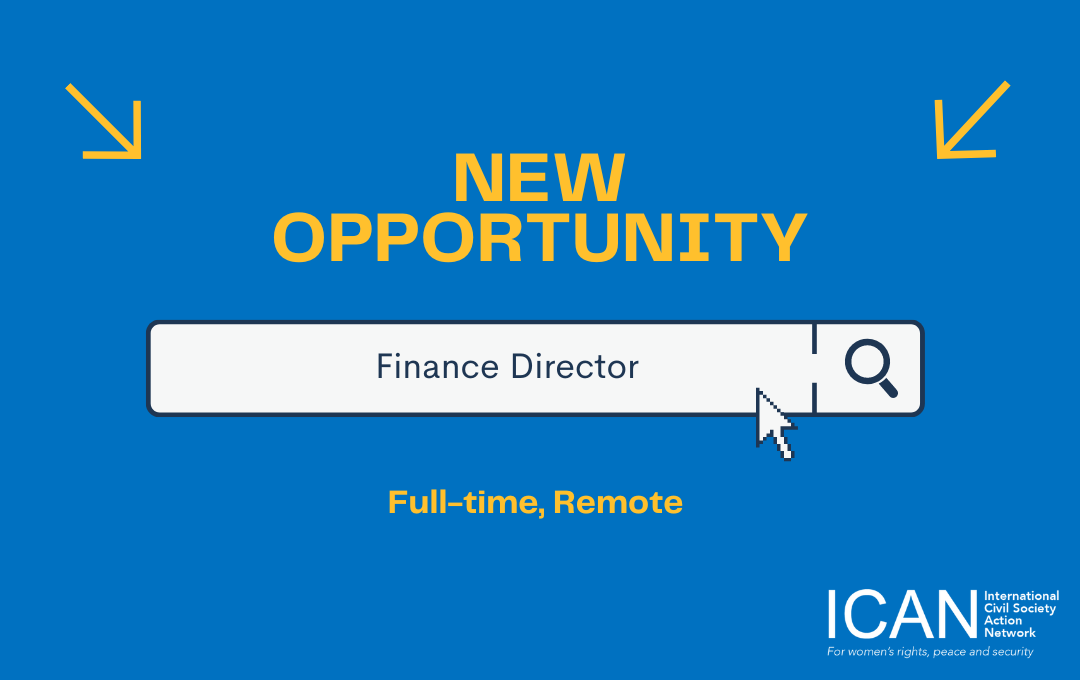
ICAN seeks a highly qualified Finance Director to join our team dedicated to supporting women peacebuilders worldwide in promoting gendered peace and security.

This article was based on an interview with Concy Dianah, Program Coordinator at Women Relief Aid (WRA), and an on-site visit to WRA in Juba, South Sudan by ICAN Program Directors France Bognon and Helena Gronberg.
South Sudan’s brutal civil war formally ended in February 2020, following the signing of the Revitalized Agreement on the Resolution of the Conflict in the Republic of South Sudan (R-ARCSS) one and a half years earlier. Despite this, violence persists, and South Sudanese women continue to face the burden of the prolonged civil conflict. The R-ARCSS has not effectively addressed the root causes of the conflict, and women find their concerns and interests sidelined in the peace process.
Women Relief Aid (WRA), a South Sudanese women-led NGO and member of the Women’s Alliance for Security Leadership (WASL), is making remarkable strides to improve realities for women in the country. With support from the Rapid Response Window (RRW) of the United Nations Women’s Peace and Humanitarian Fund (WPHF) in partnership with the International Civil Society Action Network (ICAN), WRA is strengthening young women’s participation in local and national peace efforts.
“When women rise, we all rise, we rise for a peaceful South Sudan!”
– Doreen, WRA Project Beneficiary
South Sudan’s devastating civil war resulted in the death of an estimated 400,000 people and displaced over four million. The country also faces a dire humanitarian crisis. Despite the official end to the conflict, the security situation in South Sudan remains highly insecure with intercommunal violence and attacks threatening to undo fragile steps towards peace. Women and girls bear the brunt, with up to 65% South Sudanese women having experienced sexual or physical violence, according to the International Rescue Committee.
Young women are uniquely placed within this dynamic. They are most likely to be victims of violence and are connected to the most prominent drivers of inter-communal conflict, including cattle raiding to pay for high dowries, sexual and gender-based violence (SGBV), and land disputes around inheritance laws.
South Sudan Civil War and Pursuit of Peace: Timeline
“Women shy away from reporting, even during armed conflict; a woman is raped, and she is not supposed to say. You don’t have access to find justice or resolve issues because you are a woman.”
– Concy Dianah, WRA
Globally, abundant evidence shows that women’s participation in peace processes and political decision-making at local and national levels leads to safer, more inclusive societies.
Genuine progress towards peace in South Sudan relies on an urgent and dedicated commitment to fulfilling the terms and milestones of the R-ARCSS and the meaningful inclusion of women. Yet, women continue to be underrepresented and excluded from national, state, and community peace efforts.
At the national level, women’s representation consistently falls below the 35% minimum commitment laid out in the R-ARCSS. Meanwhile, at the state and community level there is little awareness of the 35% requirement, “and if they do know, it is not practiced,” explains Concy Dianah. “Girls and women have no voice in family meetings, community gatherings, or community dialogues,” she adds.
“The mindset…makes it so hard for women in leadership at the local level where most of the challenges, insecurities, and conflicts happen. Women are not represented.”
– Concy Dianah, WRA
Cultural and traditional norms which prevent women’s participation are compounded by the burden of providing for their families and low literacy rates, with girls’ education considered “taboo” in some South Sudanese states. A lack of access to information and resources also means South Sudanese women are largely unaware of the contributions they can make to sustainable peace.
“For justice to prevail we need representation of women.”
– Concy Dianah, WRA

WRA’s project was funded under WPHF’s rapid response mechanism (Rapid Response Window), which aims to address the diverse barriers to women’s meaningful participation in the implementation of a peace agreement. With this grant from ICAN and WPHF, WRA is strengthening the capacity of young women leaders and groups from marginalized communities to actively contribute to peacebuilding initiatives that reinforce the values of the R-ARCSS. Their team used the grant to train 40 young women in peacebuilding and 50 young women in peace mediation from across all 10 states of South Sudan, on topics including conflict resolution, conflict management, and community mediation.
“We learned how to be peaceful members of our communities – you cannot build peace when you do not have peace…Peace starts with a person.”
– Anna, WRA Project Beneficiary
By transforming societal attitudes and behaviors about women’s roles in peace and security, WRA aims to create a more accepting, conducive environment for their participation. At the national and state level, WRA held stakeholder orientation meetings and conducted advocacy visits to the R-ARCSS committee and state peace committees on young women’s roles in peacebuilding. They also organized a national peace festival, engaging more than 300 individuals on the importance of inclusivity, equal participation, peace, and gender equality, through cultural activities.
To spread their message to the grassroots, WRA conducted rural outreach programs and held orientation meetings with local stakeholders. They also conducted several intergenerational forums with South Sudanese community-based organizations to identify gaps and challenges for the inclusion of young people in decision-making. Crucially, these spaces enabled members of different generations to collaborate, share lessons, and initiate mentorships.




WRA has made a significant impact on raising awareness and engaging young South Sudanese women in understanding their roles in peacebuilding. Project beneficiaries repeatedly described feeling empowered by the knowledge they had gained and inspired to use their voices to advocate for their own rights and for others. They also felt compelled to transfer this knowledge in their communities by organizing their own training sessions, dialogues, and drama-tellings, generating a multiplier effect.
“We will apply the knowledge in our communities, using informal community dialogues to share skills with [other] women to solve community level issues.”
– Mary, WRA Project Beneficiary
The initiatives have had a tangible impact on women’s participation in decision-making. Project beneficiaries have sought out spaces to lead at the boma (the lowest-level administrative division, equivalent to a village) and payam (the second-lowest administrative division in South Sudan, below counties) levels.
For example, WRA focused its advocacy efforts on women’s participation in community meetings and brought several graduates of WRA’s programming to participate alongside local leaders and chiefs over land disputes and grazing issues. These gatherings serve as crucial forums for resolving intercommunal conflicts, particularly those between cattle raiders and farmers, ensuring fair resolutions and compensations. Given that a significant portion of farmers, grappling with the challenges of providing for their families, are women, it is essential that they can represent and speak for themselves and not be boycotted by male relatives or community leaders.
One participant of WRA’s peace mediation training went on to be elected as boma chief in Torit County, a notable achievement given that local chiefs have historically been men. When other localities saw her success, they followed suit. Now, more than four states have female chiefs in payams and bomas.
“They [female chiefs] have a lot of influence at the community level… they know the problems and are always present in every community dialogue, conflict resolution, or compensation meeting.”
– Concy Dianah, WRA
WRA has used media programming to amplify the results of their efforts to a wider audience and increase the credibility of women as leaders for positive change. Upon recognizing the success of WRA projects, the United Nations Mission in South Sudan (UNMISS) granted the organization bi-monthly free access to its radio station. Leveraging this key platform within South Sudanese society, WRA has organized more than 60 radio talk shows featuring young women participants from the trainings, reaching an audience of over 12,000 listeners across the states. During their visit to South Sudan in June 2023, ICAN’s France Bognon and WPHF’s Cherine Aly were hosted on the radio talk show to discuss WRA’s project implementation and funding opportunities for South Sudanese women’s organizations. WRA has also developed social media campaigns and conducted two TV talk shows.
The proudest achievement of the organization is its pivotal role in fostering coalition building among women-led organizations in South Sudan. Empowered by WRA’s peacebuilding training, individuals joined forces to form national women’s alliances, collectively championing their inclusion in decision-making and leadership roles. Collaborative efforts, such as the Women Arise Network, focus on ensuring the full implementation of the R-ARCSS across critical sectors, including the constitutional-making process, truth and reconciliation efforts, and the electoral commission.
“After this training, women started a small coalition of young grassroots organizations to amplify their impact. South Sudanese women at the grassroots now know that there are other women out there fighting for them.”
– Doreen, WRA Project Beneficiary
Through their grassroots initiatives, WRA has created a platform for connection, encouragement, and advocacy among South Sudanese women peace advocates, especially the youth. They boast a strong and broad network across all states, can easily and quickly share and receive information, and jointly lobby for more resources, capacity building and representation in different spaces.
– Jully, WRA Project Beneficiary
“Women have been isolated because they do not have enough money. If you do not have money, they [male leaders] will not value the point you have.”
Since its founding in 2018, WRA has carried out a range of interventions, from humanitarian assistance for women’s sexual and reproductive health and rights to supporting education and livelihoods projects. Concy Dianah stressed the importance of holistic support for humanitarian, development, and peace efforts when reaching marginalized segments of South Sudanese society. “In order to be heard, and to get recognition you also need to be empowered economically,” she explained. She emphasized the need for young South Sudanese women to be empowered with skills, knowledge, and capital alongside peacebuilding training.
“WRA is all about ‘we,’ the young people. We have been isolated, but WRA has really listened, asking what our challenges are, and then they build with us.”
– Jully, WRA Project Beneficiary
Looking to the future, WRA aims to capitalize on the peace movement that is spreading among young South Sudanese women. Following this project, the organization is quickly gaining national attention and forging new connections with partners and donors within the country and internationally. To continue to amplify WRA’s successes and aspirations, ICAN and WPHF seek to provide flexible and holistic funding based on trust, knowing that the WRA team will continue to make the greatest impact when given the space to respond to changing circumstances.
“The ICAN team [through the WPHF partnership] has made WRA known to many other donors… it’s given us a big platform to have more partners and exposure inside South Sudan and outside.”
– Concy Dianah, WRA
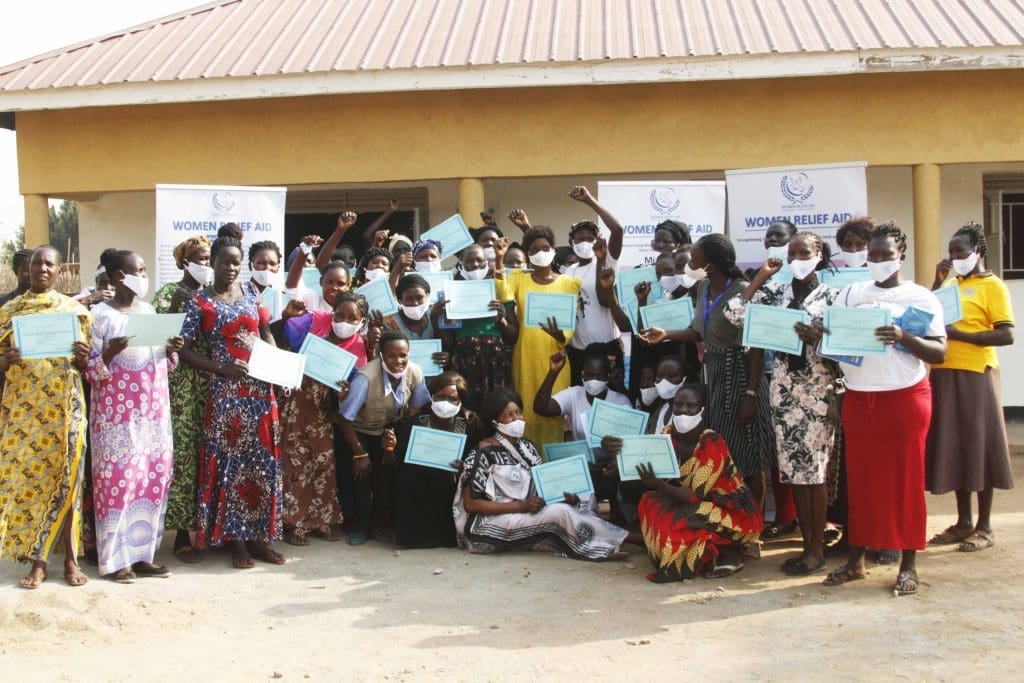
Funded by:
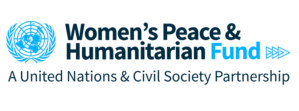
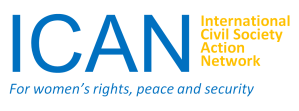

ICAN, in partnership with the Permanent Missions of Norway, Sweden, and Canada, the United Kingdom Foreign Commonwealth & Development Office (UKFCDO), the Ministry of Gender, Child and Welfare of South Sudan, the Global Partnership for the Prevention of Armed Conflict (GPPAC), and the National Transformational Leadership Institute (NTLI), convened a 1.5-day workshop to discuss how to strengthen community security as a localized, transformative approach for sustainable peace.
Allamin Foundation AWAPSA AWAW CIASE CoACT Exclude from RSS GEN Myanmar ICAN Featured ICAN Updates Mobaderoon PAIMAN PCID Policy Advocacy Women's Alliance for Security Leadership
Recognizing Women Peacebuilders: Critical Actors in Effective Peacemaking / الاعتراف ببانيات السلام: عناصر فاعلة حاسمة في صنع السلام الفعال
Exclude from RSS
Funding Women Peacebuilders: Dismantling Barriers to Peace / تمويل عمل بانيات السلام: تفكيك الحواجز التي تعرقل السلام
Exclude from RSS
Protecting Women Peacebuilders: The Front Lines of Sustainable Peace / حماية بانيات السلام: الخطوط الأمامية للسلام المستدام
Exclude from RSS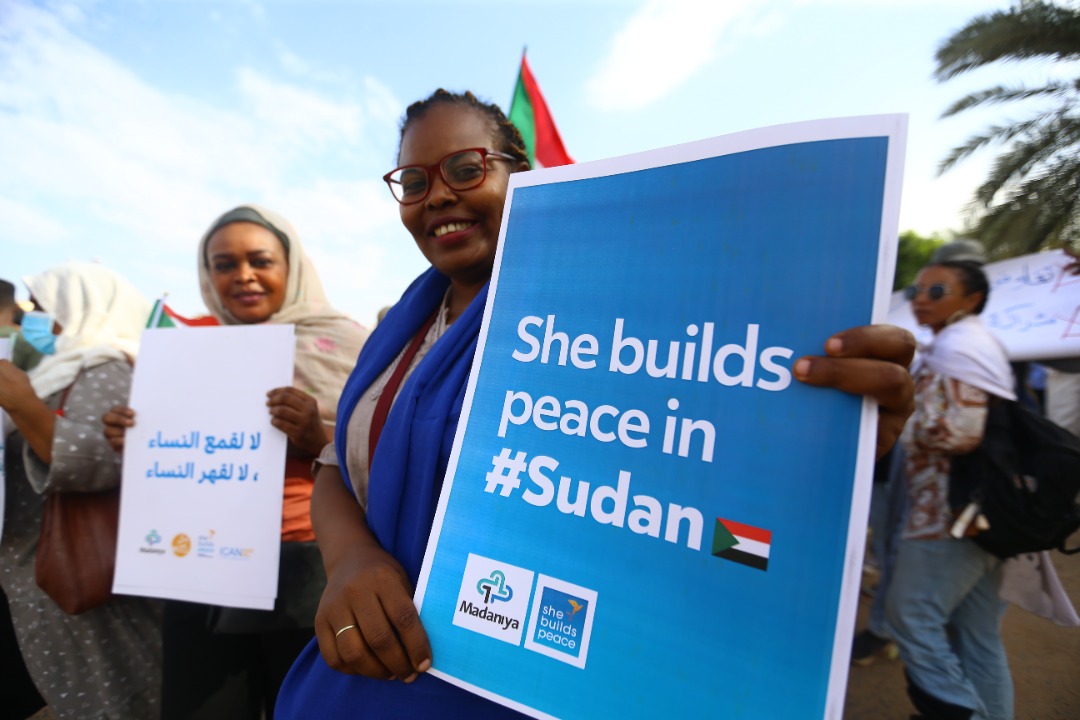
On Sunday, February 4, 2024, our dear friend, partner, and colleague, Enass Muzamel, Co-Founder of the Sudanese peacebuilding organization Madaniya, passed away due to a sudden illness. We express our deepest sympathies to Enass’ family, friends, and colleagues in Sudan and around the world. Together with them, we are in deep shock and mourning for […]
Exclude from RSS ICAN Updates
With support from the Rapid Response Window of the United Nations Women’s Peace and Humanitarian Fund in partnership with the International Civil Society Action Network, Women Relief Aid, a South Sudanese women-led NGO and member of the Women’s Alliance for Security Leadership, is making remarkable strides to improve realities for women in the country.
Exclude from RSS ICAN Latest ICAN Updates Our Stories Stories Women Relief Aid
The ICAN team seeks a highly motivated Program Intern to work on a range of research, coordination, and program tasks. This unpaid summer internship can be part- or full-time and will run from June through August 2024 (dates can be negotiated). Program interns benefit from attending educational events and learning from the diverse experiences of the ICAN team and our partners in the Women’s Alliance for Security Leadership (WASL).
Exclude from RSS Internships
On November 22, 2023, the Norwegian Agency for Development Cooperation (Norad) and the International Civil Society Action Network (ICAN)—in partnership with Women’s International League for Peace and Freedom (WILPF), Legal Action Worldwide (LAW), and Karama hosted a high-level dialogue to reimagine partnerships and coordination between women peacebuilders, international mediation, humanitarian, and development actors in crises and conflict settings.
Exclude from RSS ICAN Featured ICAN Updates
ICAN was invited to attend the Shaping Feminist Foreign Policy Conference at the World Forum in The Hague from November 1-2, 2023. Organized by the Dutch Ministry of Foreign Affairs (MFA), the conference welcomed more than 750 participants from over 40 countries. On the first day of the conference, ICAN hosted a side event titled: No Feminist Foreign Policy Without Feminist Funding, in partnership with GPPAC.
Exclude from RSS ICAN Latest ICAN Updates
Rawan Kahwaji is a Program Officer at the International Civil Society Action Network (ICAN). She supports the Innovative Peace Fund, and is based in Brussels, Belgium. Rawan had seven years of experience working with civil society organizations (CSOs) in Turkey, Syria, and Europe and has experience in project coordination, advocacy, and communications within the humanitarian field.
Exclude from RSS
Isabela Karibjanian is the Publications Coordinator and Editor at the International Civil Society Action Network (ICAN). At ICAN, she serves as the focal point for the production of all published materials, from flagship reports and guidance tools to advocacy documents and articles. She is based in London, UK.
Exclude from RSS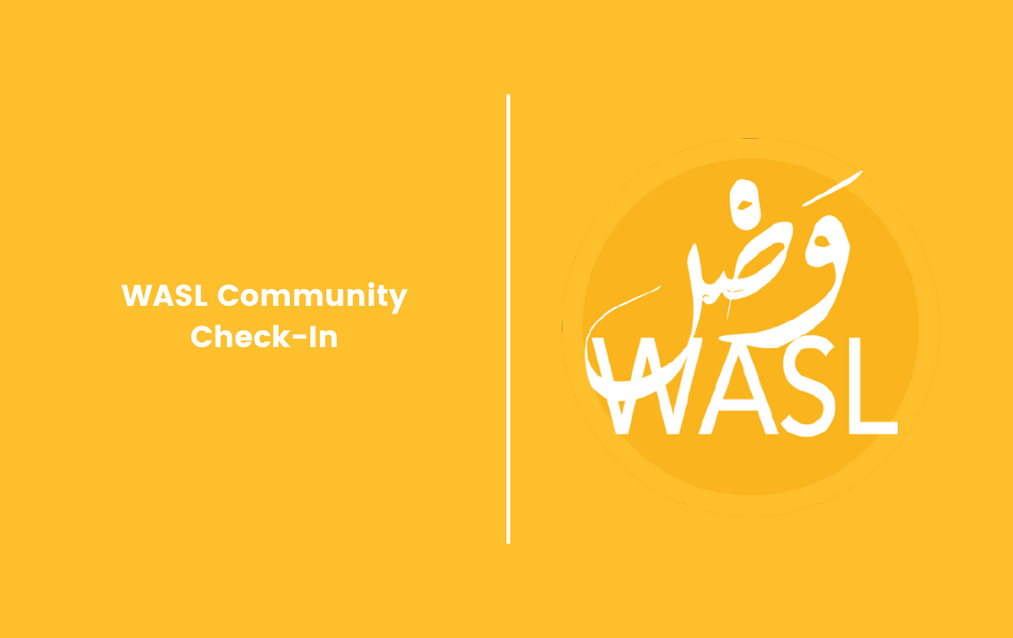
Today, over 1 billion people still lack access to clean water and electricity. Environmental and climate change exacerbates this problem and exposes fragile and conflict-affected communities to further risk and insecurity. While the link between resource scarcity and conflict is well understood, the potential for natural resource governance to facilitate peacebuilding is less well researched. On Thursday, October 5, 2023, ICAN welcomed Bas Berends, Co-founder and Chief Partnership Officer at OffGridBox, to join our WASL community call.
Exclude from RSS G&E Summaries ICAN Updates WASL Updates Women's Alliance for Security Leadership